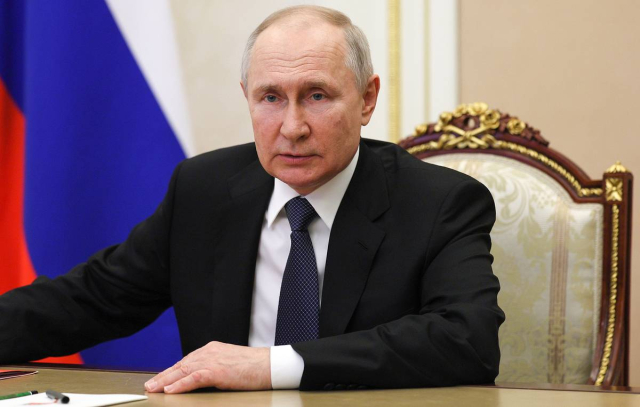Commenting on #Ukraine membership in #NATO, #Putin said “Ukraine has right to ensure its security, but not by creating threats to #Russia”[^1], a statement which on its face value sounds absurd, granted that it’s Russia that in the first place materialised the largest threat in the last half century for Ukraine and Europe.
But behind that statement there’s a certain logic of Russian elites, and since this postulate was and will be picked up by the Putinverstehers of the world, I think it requires a clarification.
Russians wholeheartedly believe they have a moral right to Ukraine and Eastern Europe. This “right” is not based on, or directly contravenes all kind of international agreements and obligations signed by Russia but it doesn’t matter, because Russia treats all laws in the same way as explained by Simonyan in the context of Wagner mutiny - they are “made for humans” and can be applied selectively, as necessary.[^2]
Because of the above, they also believe they have a moral right to intervene, either covertly, as they did all the time before 2014, or directly, using military force, as they did starting from 2014. These interventions form the core of “security of Russian interests” frequently mentioned by Putin and others.
This vague “moral right” to interventions of their liking was precisely what drove not only annexation of Crimea and war in Donbas, but also numerous GRU assassinations in Europe, explosions in Vrbětice etc. And, to be honest, lukewarm reaction of the international community was perceived by them as a kind of approving nod.
Now, once we established how these interventions in “their zone of influence” (once again, having no legal base) are considered as their sacred right, any defensive actions or countermeasures undertaken by the target countries are naturally described by Russia as “violation of their security”.
This is exactly how air defense “Patriot” batteries located in #Poland were described by Russians as “threat to their security”, and this is exactly how Ukrainian static lines of fortifications in Donbas were also described as “offensive”. Of course, you can’t invade another country with static trenches 20 km from their border, but dialectically these fortifications reduced options for Russian invasion, thus limiting their “sacred right” to invade. 🤷♂️
This kind of dialectics has a long tradition in Russia: during and after WW2, Soviets many times labelled as “Nazis” anyone who fought against Soviet influences even if they also fought against German invasion. Which led to absurd arguments, where people like Poland’s Witold Pilecki, who tirelessly fought against Nazis from 1939, when USSR was German ally, was at the end of the war sentenced to death as “Nazi collaborator” because he also opposed Soviet occupation.[^3]
[^1]: tass.com/world/1646611
[^2]: agora.echelon.pl/notice/AX56Nl…
[^3]: write.as/arcadian/on-the-kreml…

Ukraine has right to ensure its security, but not by creating threats to Russia — Putin
According to the Russian president, the draft agreement between Moscow and Kiev, which was put together in Istanbul, stipulated detailed guarantees of Ukraine's securityTASS